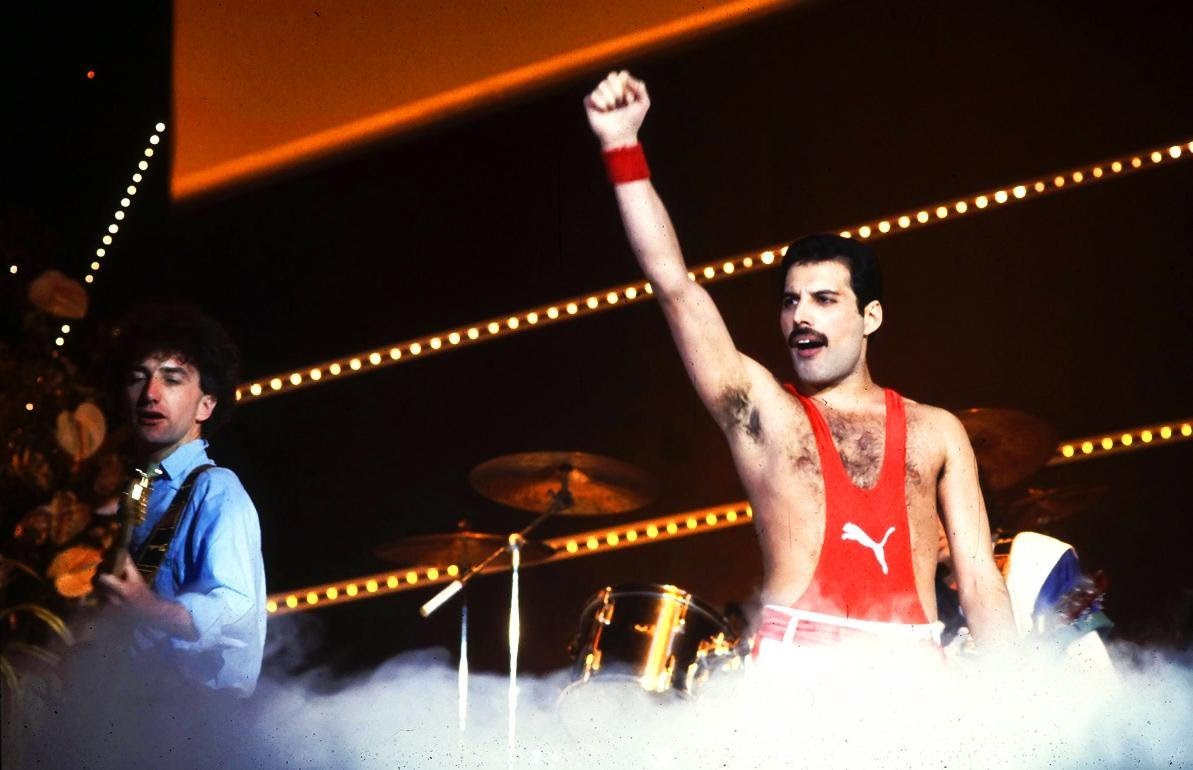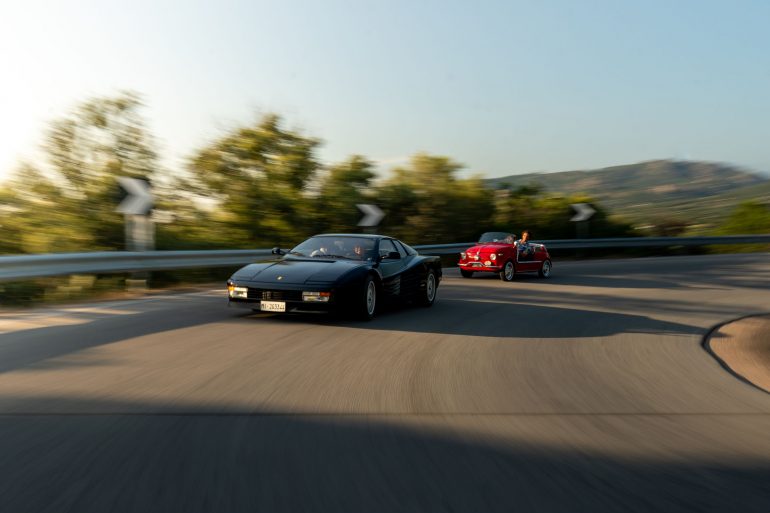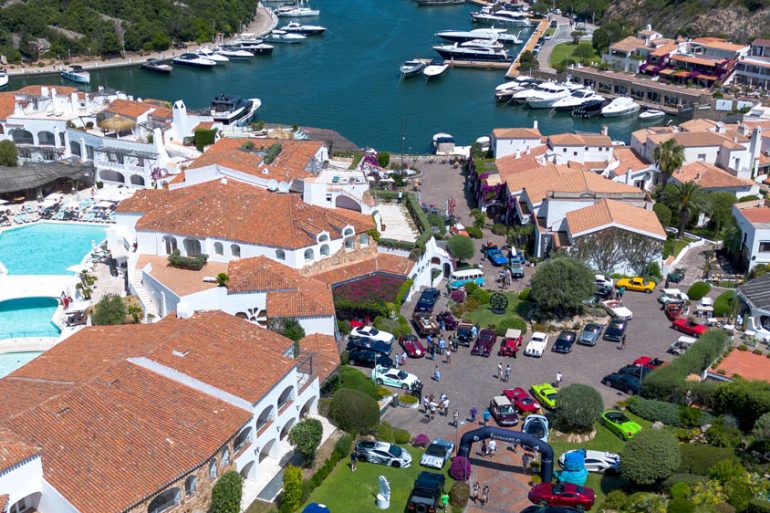“Perché Sanremo è Sanremo” — today there are no references to the world famous Rally.
We are genuinely obsessed by cars, planes and boats, but we also love music. And this week Italy is almost all about the 73rd edition of the annual Sanremo Music Festival. As the popular TV song contest held at Teatro Ariston starts in a few hours, we want to celebrate it in our own way.
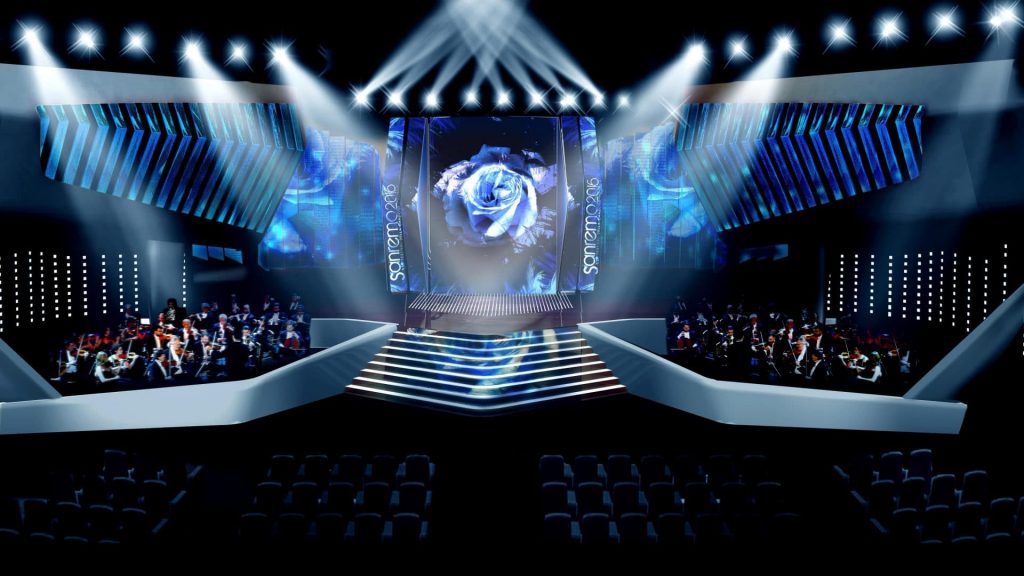
Successes and oddities, flops and memorable performances, here is a journey through some of the most iconic moments. “Perché Sanremo è Sanremo” — as the theme song said a few years ago — and for better or for worse, the Festival has always been a lucid mirror of the Italian society.
January 29, 1951: the first edition of the Sanremo Music Festival goes on air. Since then, an immortal, 100% Italian broadcast has begun. Nothing has been able to stop, not even the pandemic.
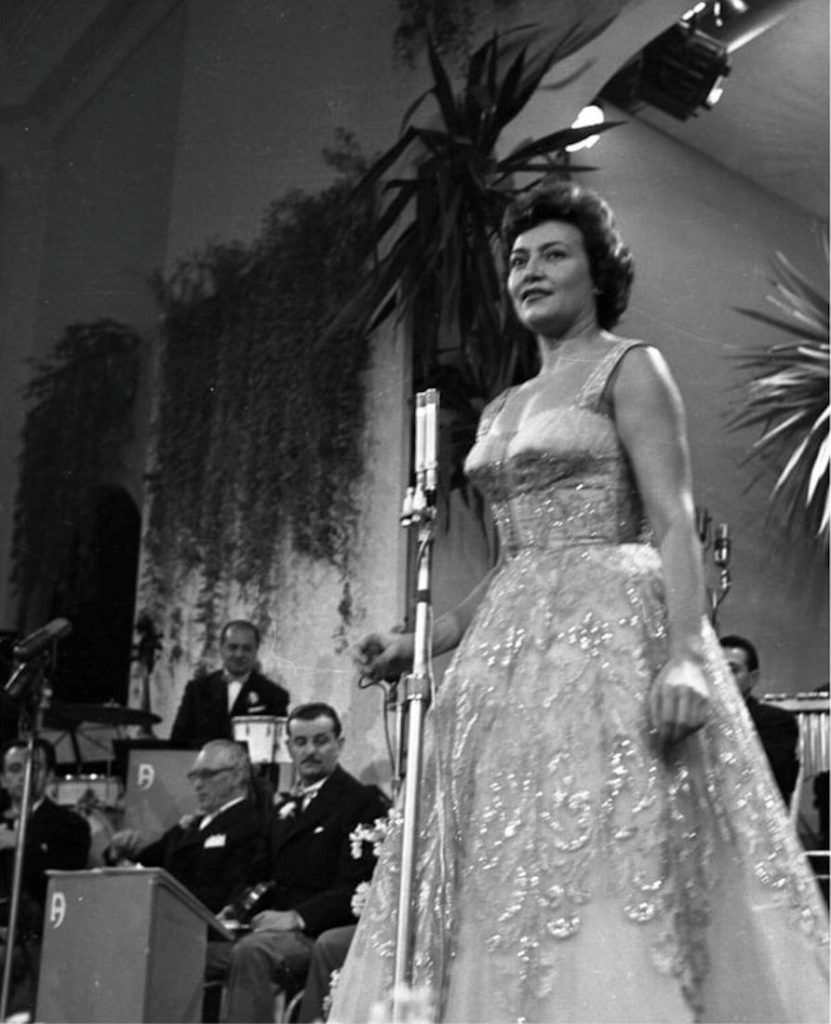
The first Festival took place in the Salone delle Feste of the Casino, hosted by legendary Nunzio Filogamo. There were 20 songs in the competition, while only three performers competed: Nilla Pizzi, Achille Togliani and the Duo Fasano. The winning song was ‘Grazie dei fiori’ performed by Nilla Pizzi.
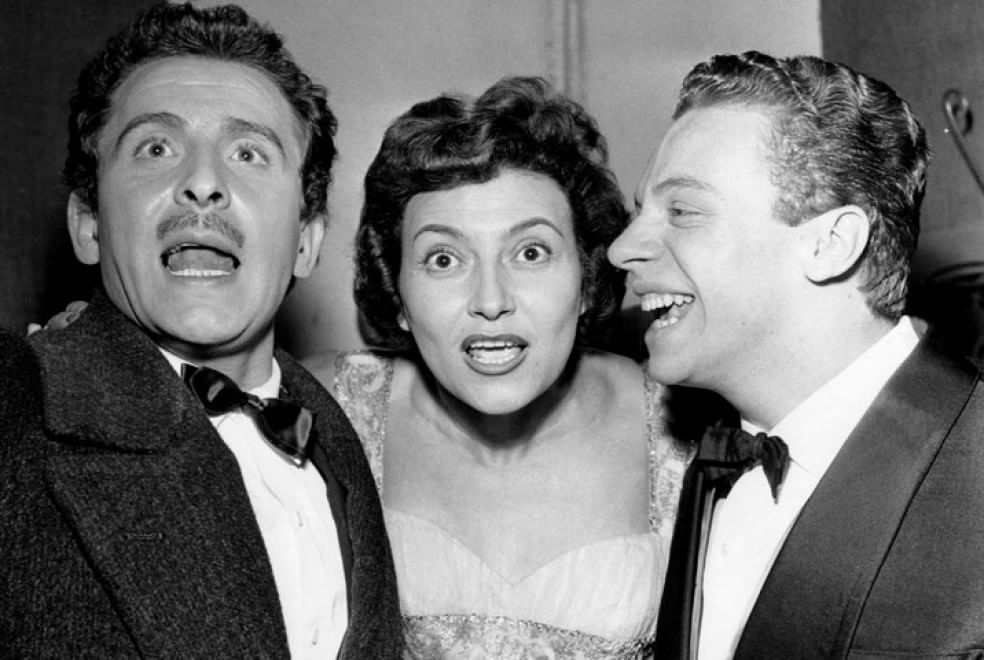
In 1958 the Festival was presented by actor Gianni Agus, assisted by television announcer Fulvia Colombo. According to the rules of this 8th edition every song was performed in a double performance by a couple of singers or groups, with some artists performing multiple songs. The winner of the Festival was ‘Nel blu dipinto di blu’, performed by Domenico Modugno — who was also the composer of the song — and Johnny Dorelli.
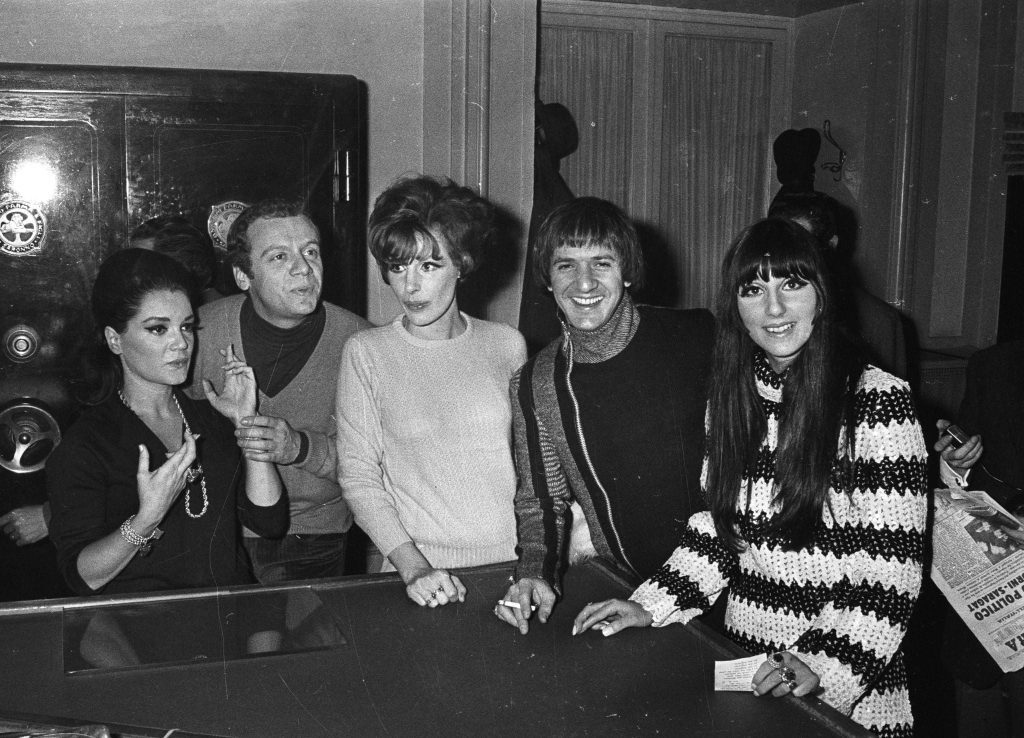
The 1967 event was presented by anchorman Mike Bongiorno, helped by TV presenter and actress Renata Mauro. Singers Iva Zanicchi and Claudio Villa won the Festival with the song ‘Non pensare a me’; following the kermesse, the biggest success and most popular track was ‘Cuore matto’ by Little Tony, which sold 6 million copies and was the no.1 hit for nine consecutive weeks in the Italian hit parade. Shortly after the contest ended, the original tape of the contest was lost: it would have taken no less than four decades before a copy got recovered and restored by Italian broadcaster RAI.
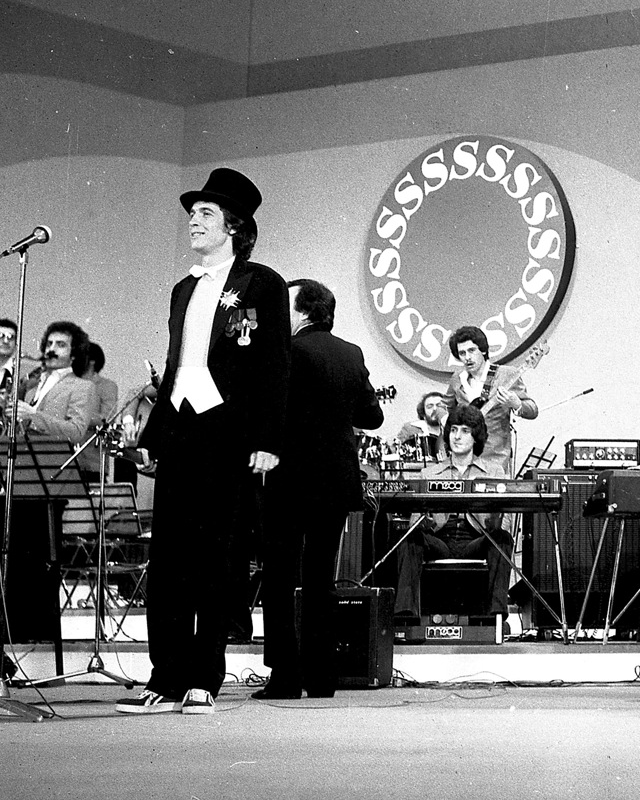
The 28th edition was held — for the second time — at Teatro Ariston in 1978. The Festival location never changed since then. The winners were Matia Bazar with the song ‘E dirsi ciao’. On stage, amongst others, was Rino Gaetano with his song ‘Gianna’.The singer appeared on stage wearing a tight-fitting tailcoat, a black tuba — given to him by Renato Zero — and a pair of red sneakers. Rino uttered the word sex, contained in the song’s lyrics, for the first time ever at Sanremo Festival. That was the destruction of a taboo and a gesture long discussed by critics.
Prominent amongst the special guests in 1984 were Queen, who performed their hit Radio Ga Ga. They would have liked to sing and play live, but the Festival organizers, pushed by record labels, forced them to playback. So much that Freddie Mercury, in a sign of protest, performed almost the entire song holding the microphone well away from his mouth. The TV director clumsily tried to cover that up by turning down the song’s sound.. Bravo Freddie!

It was 1986 and, still talking about provocations, Loredana Bertè hit the stage for the first time. She appeared with a fake baby bump and her performance scandalized all the Christian Democrats sitting in the audience. The fake roundness, hidden under a tight black leather dress, was seen by many as a real act of rebellion.
The controversy triggered by that gesture was so hot that Bertè’s then record label, CBS, revoked her contract. The song — ‘Re’ — placed ninth and a young Eros Ramazzotti won the contest.
The 37th Sanremo Music Festival in 1987 was presented by anchorman Pippo Baudo —and won by the trio consisting of Gianni Morandi, Enrico Ruggeri and Umberto Tozzi with the song ‘Si può dare di più’. This edition stands out amongst the many conducted by the Sicilian presenter because of one of the special guests chosen that year. Together with Duran Duran, a young and shy Whitney Houston appeared and performed with ‘All at Once’. The video needs little or no explanation. A standing ovation from the entire audience, speechless after the performance of such a powerful voice, led the host to promptly ask the artist to perform once again. Pleasantly surprised and incredulous, with her perennial smile that distinguished her, Whitney immediately accepted and sang again with extreme naturalness: another memorable moment that marked the history of the Italian kermesse.
The winner of the Big Artists section, during the 1989 Festival, were Fausto Leali and Anna Oxa with the song ‘Ti lascerò’, and Mietta won the Newcomers section with the song ‘Canzoni’. Only in this edition it was introduced the Emerging artists category, whose members were selected through a television contest broadcast on Radio 1. Mia Martini’s ‘Almeno tu nell’universo’ was also very successful. Thanks to this song the singer — Loredana Bette’s sister — returned to performing in front of the general public after a long period of ostracism from the Italian music scene. A great sales success followed and also she won the Critics’ Prize.
The 1996 show, presented by Pippo Baudo — who also served as artistic director — with actresses Anna Falchi and Claudia Koll. The winner of the Big Artists section was Giorgia with the song ‘Come saprei’, which also won the Critics Award. The a cappella group Neri per Caso won the Newcomers section with the song ‘Le ragazze’. During the opening night, shortly after the beginning of the show, a man, sat on the edge of the gallery of the theatre and showed the intention to commit suicide jumping below, shouting “Pippo, io mi butto” — Italian for “Pippo, I’m jumping”; he was eventually stopped by Baudo himself amid the applause of the audience. Amongst the special guest the stage was rocked by Madonna with her ballad ‘Take a bow’ in a super chic Versace dress. The Singer, Madonna, now comfortable in haute couture, managed to cause a thrill as she entered as a femme fatale, leaving the audience speechless as if in front of a celestial apparition.

